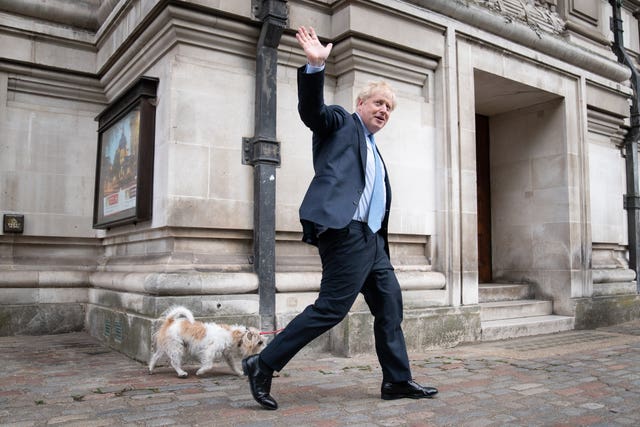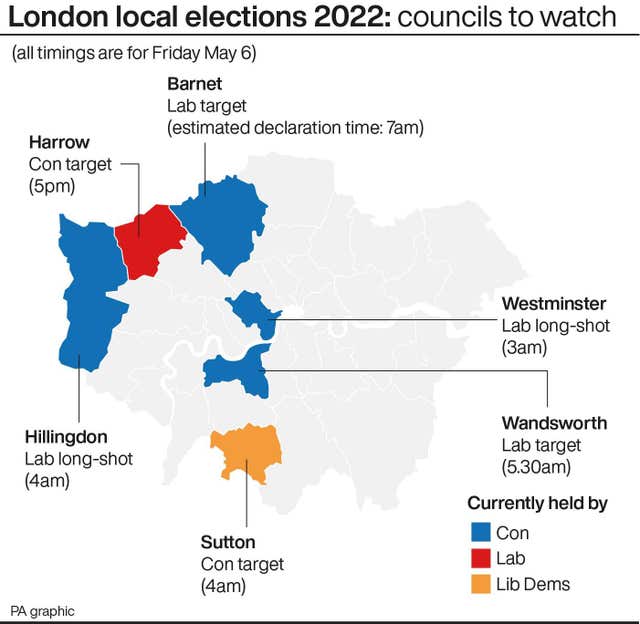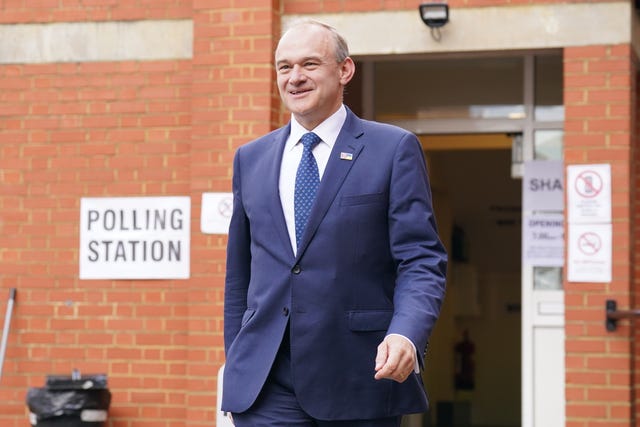Tories braced for London defeats as Labour loses Hull to Lib Dems
Votes are being counted following Thursday’s local elections, with Boris Johnson’s party expecting a tough night.

Boris Johnson’s Tories face losing control of a flagship London authority to Labour – but there was a mixed picture for Sir Keir Starmer’s party outside the capital.
Wandsworth, which has been a Conservative authority for more than 40 years, looks set to fall to Labour, with the Tories fearing other boroughs will also be lost.
But outside London, the Liberal Democrats won Hull from Labour, while the Greens also picked up seats in contests around England.
Labour picked up control of the new Cumberland authority, where a senior local Tory called for Mr Johnson to go.
John Mallinson, leader of Carlisle City Council which will be replaced by the new authority, told the BBC: “I think it is not just partygate, there is the integrity issue. Basically I just don’t feel people any longer have the confidence that the Prime Minister can be relied upon to tell the truth.”
The Tories also lost Worcester to no overall control, with gains for the Greens and Labour.
Council seats are up for grabs in Scotland, Wales and many parts of England, while there are elections to Stormont in Northern Ireland.
Votes were only being counted in some of the English contests overnight, including key authorities in the capital.

Wandsworth is a totemic authority for the Tories. It turned blue in 1978, a year before Margaret Thatcher’s election as prime minister and was reputedly her favourite council, renowned for its low taxes.
But Tory insiders believe it is a “definite loss”, along with Barnet, while Westminster could also see a loss of Tory control in what would amount to a grim night for Mr Johnson’s party in the city he used to run.
The leader of the Labour group in Barnet, Barry Rawlings, told the BBC: “I’ve been feeling confident for a while.”
The elections take place following the partygate scandal and with concerns about a cost-of-living crisis underlined by grim economic forecasts from the Bank of England on polling day.
Mid-term elections are always difficult for a governing party, although as many of the English seats were last contested in 2018, during Theresa May’s chaotic administration, opportunities for opposition parties to make further gains may be limited.
A Tory source conceded “we expect these elections to be tough”.
Cabinet minister Brandon Lewis insisted Mr Johnson remained the right person to lead the party, amid speculation that a bad set of election results – coupled with any further revelations about No 10 lockdown-busting parties – could see more Tory MPs submitting letters of no confidence.
The Northern Ireland Secretary told Sky News: “I absolutely think we can win the next election, and I do think Boris Johnson is the right person to lead us into that.”
Policing minister Kit Malthouse told the BBC: “The further away you get from London, our sense is that the picture is better for us.”
In Rutland, where there is not even an election, the Tories suffered a setback as county council leader Oliver Hemsley announced he was leaving the party, claiming the area had been “ignored, side-lined and given no further improvements in our spending power” from the Government.
Counting in many English authorities, Scotland, Wales and Northern Ireland will not begin until later on Friday.
The contests are the first chance for voters to have their say since Mr Johnson and Chancellor Rishi Sunak were fined for breaking coronavirus laws and the party was hit by other scandals including Neil Parish quitting after admitting he watched pornography in the Commons.
The squeeze on household finances is also a major issue, as the Bank of England made clear on Thursday – with interest rates rising to 1%, inflation forecast to hit more than 10% and the economy predicted to contract in the final three months of the year.
Labour’s campaign has been hit by Tory calls for Durham Police to look into whether Sir Keir broke Covid rules while campaigning before the 2021 Hartlepool by-election – something he has dismissed as “mudslinging”.
The Tories have also complained about a secret pact between Labour and the Lib Dems to maximise Conservative pain in marginal seats, something denied by both opposition parties.

Labour Party chair Anneliese Dodds acknowledged there would be “ups and downs” in the results but said she hoped they would show progress since the 2019 general election drubbing under Jeremy Corbyn.
Shadow work and pensions secretary Jonathan Ashworth acknowledged there was a mountain to climb for the party following the 2019 general election.
“It’s climbable, but my god it’s a big mountain because we got an absolute hammering in 2019, the worst result since the 1930s,” he told the BBC.
The Liberal Democrats focused on making further inroads in Tory heartlands – the “Blue Wall” in southern England – following recent Westminster by-election successes in North Shropshire and Chesham and Amersham.

Party leader Sir Ed Davey said: “I am optimistic that thanks to their hard work, the Liberal Democrats will gain ground in areas across the Blue Wall where voters are fed up of being taken for granted by the Conservatives.”
But the Lib Dems also secured victory in Hull in a straight fight with Labour for control of the authority.
After 45 councils had declared, the Tories had lost control of one authority and suffered a net loss of 50 seats, Labour had a net gain of 21 seats, the Lib Dems gained control of one council and put on 28 seats, while the Greens had gained 17 councillors.
In England, more than 4,000 councillors in 146 councils are standing for election in major cities including Leeds, Manchester, Birmingham and all 32 London boroughs.
All 32 councils in Scotland and all 22 in Wales are also holding elections.
In Northern Ireland voters went to the polls across 18 constituencies to elect 90 MLAs.
The unionist DUP and republican Sinn Fein are vying for the top spot in the election, which comes with the entitlement to nominate the next first minister.
A unionist party has always been the biggest in the Assembly, and previously the Stormont Parliament, since the formation of the state in 1921.
While the office of the first and deputy first minister is an equal one with joint power, the allocation of the titles is regarded as symbolically important.





